Breweries Continue to Honor Earth Day with Sustainability Initiatives
The first Earth Day, which was April 22, 1970, was a long time coming. For generations, industry and progress had pushed the population to accept polluted air, polluted water, and polluted lives. No laws regulated what could and could not be done to the Earth, and so, industry had free reign over the environment. Despite what should have been obvious, many people had not thought about the impact of continuous and unregulated pollution. Thankfully, there were still many who did.
In 1962, Rachel Carson wrote “Silent Spring.” The book criticized the unregulated use of pesticides and their effects on the environment, and also accused chemical companies of lying to the public. The best selling book also brought conservationism to the forefront of American culture, and spurred an environmentalist movement that grew throughout the 1960s.
In 1969, a bipartisan effort led by Senator Gaylord Nelson, a democrat from Wisconsin, and Republican Congressman, Pete McCloskey from California, saw the anti-war protests at universities as a guide for getting people involved in environmentalism. They wanted to host “teach-ins” on college campuses throughout the country to promote environmental awareness. Interest was high, and soon the activist they’d hired to organize the event, Denis Hayes, had an organization of 85 people promoting events throughout the country, with the help of several organizations, including religious groups. The date of the event was scheduled for April 22, 1970, and the day was to be called Earth Day.
That first Earth Day not only brought together the various groups fighting against the many forms of pollution, but it brought about change as well. In its wake the Nixon administration created the Environmental Protection Agency, and unprecedented environmental laws including the National Environmental Education Act, the Occupational Safety and Health Act (establishing the Occupational Safety and Health Administration), the Clean Air Act, the Clean Water Act, the Endangered Species Act and the Federal Insecticide, Fungidcide and Rodenticide Act.
In the 48 Earth days since, Earth day has gone on to promote and normalize recycling, bring focus to climate change and fight against those who refuse to acknowledge scientific facts involving global climate. It has also been the catalyst for many individuals and businesses to focus on how their communities, businesses and industries can not only promote, but encourage, sustainability.
Craft brewing, which began its slow crawl to modern times in the late 80s when environmentalism was just as important to many young people as it is today, has always been a leader in sustainability, with many of the earliest successes building environmental awareness into their plans from the get go. As the industry grew, and technology advanced, brewers became the innovators, creating new ways to conserve and treat water, recycle energy, reduce carbon emissions and even make electricity.
In honor of Earth Day’s 50th anniversary, we pay tribute to an industry we can be proud of, asking a few questions of breweries making sustainability a priority. Here is what they had to say.
New Belgium Brewing Company
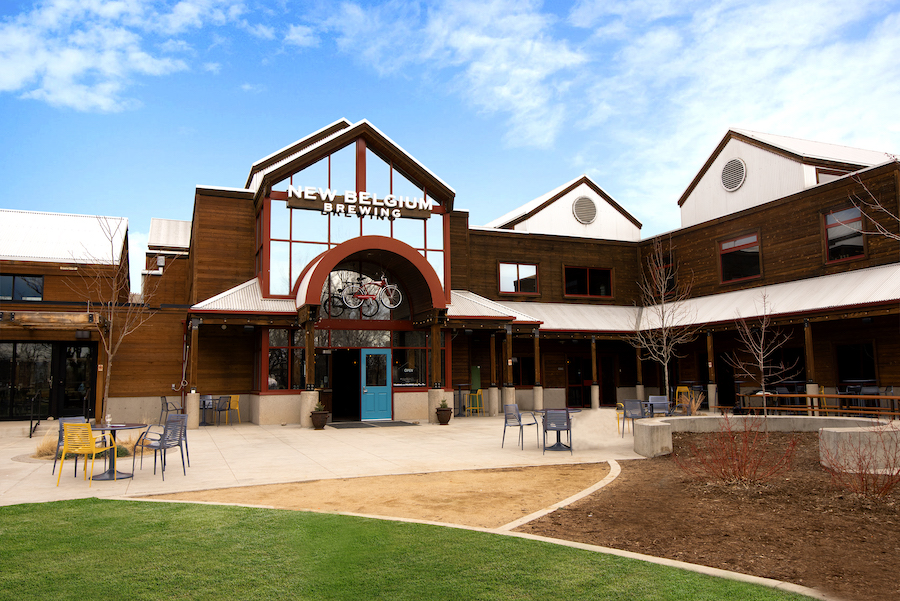
New Belgium Brewing Company in Fort Collins, Colorado, has made sustainability strides throughout their 30 years in business. A certified B-corp, at least 18% of the electricity at the brewery is produced on-site using waste water, biogas and solar power. They capture and re-purpose heat during the brewing process, co-founded the Glass Recycling Coalition, and work with their suppliers to reduce emissions in those industries. Sustainability appears to be high on New Belgium’s priorities, second only to making great beer. Over email, Megan Olson, New Belgium’s Public Relations Manager, answered a few of our questions.
Any Earth Day releases/events scheduled for the 50th anniversary?
This Earth Day, New Belgium Brewing is proud to announce an exciting partnership with Protect our Winters. For more information, tune in to our Instagram pages at @newbelgium & @fattire on Earth Day.
Why has New Belgium made sustainability a priority?
New Belgium believes in honoring nature at every turn of the business. Before they sold their first beer in 1991, our founders, Kim Jordan & Jeff Lebesch, took a hike in Rocky Mountain National Park and talked about what kind of company they wanted to create. It was there that they penned our core values & beliefs, including Environmental Stewardship. As they sat atop the Continental Divide, where our watershed begins, it wasn’t lost on them that land and water are essential to making beer. They wanted to be sure New Belgium took great care of the outdoors, our playgrounds, that make beer possible. Over the years we formalized that notion into our daily decision making at New Belgium, and today we also realize that many of our sustainability investments have helped us to save money in the long-term.
Business is one of the strongest forces in the world, and as new Belgium and many others have proved, it can be used as a force for good
Why is sustainability so important in the brewing industry?
Beer is made possible by well-functioning ecosystems and we know our role in stewarding these. New Belgium has an entire team of coworkers dedicated solely to understanding and improving our beers’ impact on ecosystems and communities.
“Without clean, abundant rivers and a stable climate, we can’t make good beer that is also affordable. Taking care of the planet is essential to making sure we all get tasty, fun beers!” said Katie Wallace, Director of Social & Environmental Impact for New Belgium Brewing.
Do you have any future sustainability improvements coming?
New Belgium has done so much over the years – brought wind power to our hometown of Fort Collins, Colorado, installed solar panels, installed engines that burn the biogas in our water treatment plant and make electricity, and saved millions of gallons of water. A few months ago, New Belgium replaced it’s grass with artificial turf to further save a couple hundreds of thousands of gallons of water. Now we’re working on a plan to drop carbon emissions even more. Certified by 1% For The Planet, our Fat Tire brand donates large sums of money to protecting public lands. We also advocate to elected officials to protect more land for ecosystem stability, as well as for biking, fishing, climbing, skiing and more.
What does Earth Day mean to the folks at New Belgium?
At New Belgium, we’re big on ritual. It’s important to zoom out occasionally, celebrate what’s worth living and working for, and remind ourselves to keep that front of mind. We love Earth Day for the refresh of inspiration to consider the business and soulful value of nature as we make daily decisions. Earth Day is actually a paid holiday at New Belgium, with the hope that coworkers will get outdoors and connect with good ol’ mama nature.
Brewery Vivant
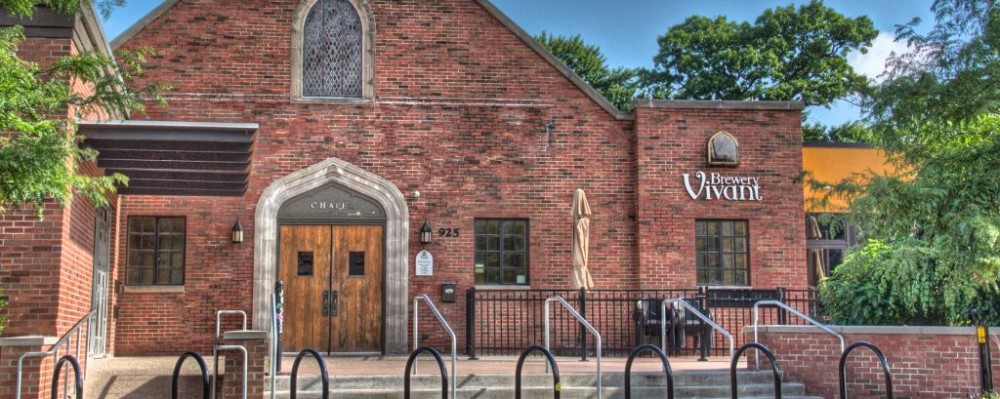
If you’re not familiar with Brewery Vivant, start paying attention. This small Grand Rapids, Michigan brewery was the first LEED certified brewery in the world (as well as a certified B Corp) because they’ve made sustainability a key tenant in their everyday routine. It’s hard to list all the measures they’ve taken to promote sustainability within their building and brewery, but they’ve decided to help, releasing a report each year on how they’re holding up.
In an email interview, President and owner, Kris Spaulding, answered some questions.
Any Earth Day releases/events scheduled for the 50th anniversary?
We don’t have anything special planned at this point.
Why has Brewery Vivant made sustainability a priority?
We simply think it’s the way all businesses should operate. We need to consider our impact of decisions on people and the planet, not just on profitability in order to have a holistic understanding.
Why is sustainability so important in the brewing industry?
We rely heavily on two things to operate – water and community. That makes it imperative for our industry to be good stewards of our environment and to understand the role we play in building and supporting community (people).
Do you have any future sustainability improvements coming?
We have been working on a CO2 recapture system with a local entrepreneur.
What does Earth Day mean to you and your business?
It’s a great reminder to take a step back and appreciate all the benefits of our natural world, on what we consume, our mental health and our physical health. It seems that too often people consider themselves as something separate from our Earth/environment when, in reality, we are just one small part of it/a system much larger than ourselves that we should work against or try to conquer.
Jester King Brewery
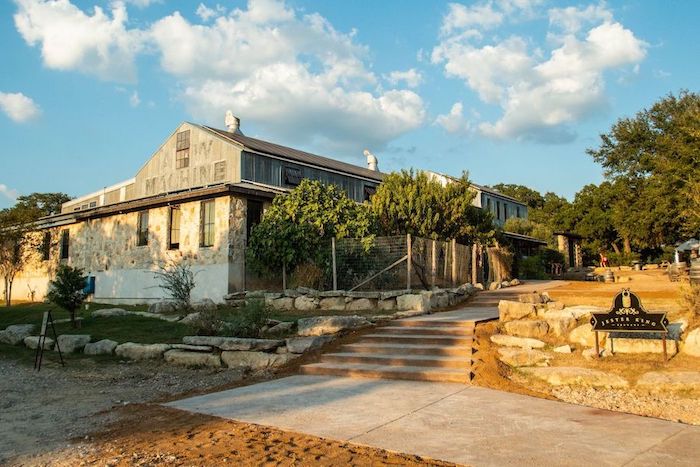
As a brewery specializing in mixed culture and spontaneous fermentation, it may not be surprising that Austin, Texas brewery, Jester King, would like to maintain a good relationship with the biosphere around it. Resting on a 165-acre farm, the brewery gives back to the land when it can, farming crops for the restaurant while using native grasses for water retention, holistic grazing for natural fertilization, and allowing the biodiversity to regulate itself in lieu of pesticides.
Founder and owner, Jeffrey Stuffings, answered our questions over email.
Any Earth Day releases/events scheduled for the 50th anniversary?
No, we don’t have an Earth Day beer release or event.
How and why has Jester King made sustainability a priority?
We’ve installed solar panels for the brewery and are on the verge of being able to recycle our wastewater for irrigation on our farm. As the central Texas population explodes, we have serious long term concerns about access to water.
Why is sustainability so important in the brewing industry?
With the population growth that’s projected over the next few decades (particularly in Texas), the natural resources necessary to make beer may be seriously threatened. Without improvements in sustainability, the long term viability of the craft beer industry as we know it may be seriously threatened.
Do you have any future sustainability improvements coming?
Our next project is rainwater collection, which dovetails with our recycling of wastewater to grow crops. Carbon capture / reduction is another area we’d like to delve into next.
What does Earth Day mean to you and your brewery?
It means thinking seriously about the future and making choices now to ensure we and we as an industry are still around in 30 years.
Do you have anything else to add?
I’m pleased that climate change appears to be getting some much needed attention during the COVID-19 pandemic.
Rhinegeist
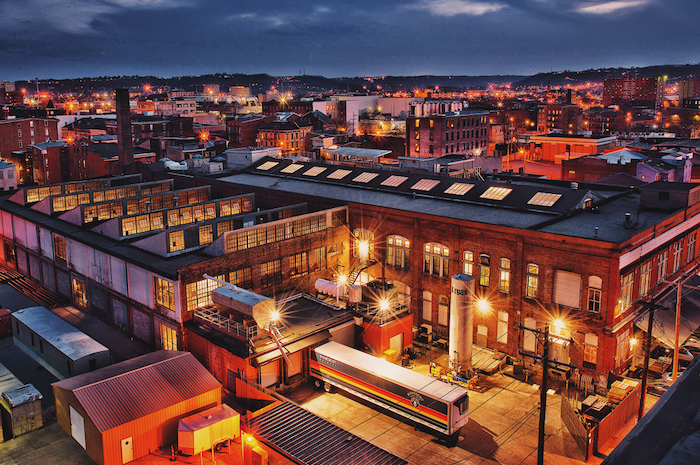
Cincinnati’s Rhinegeist has made a name for itself since opening in 2013 for making well crafted beers and ciders, as well being devoted to their community. Behind the scenes, the crew at Rhinegeist is known for making good decisions regarding quality, and now, sustainability. They are well on their way to become a sustainability leader within the industry.
Katie Hoover, Rhinegeist’s Community Engagement Manager, and Janae Chaney, Sustainability Director were kind enough to answer a few questions over email.
Any Earth Day releases/events scheduled for the 50th anniversary?
Katie Hoover: Prior to COVID-19 and stay-at-home order, we were planning an Earth Day celebration to take place on April 22. We partnered with three local nonprofit organizations to bring activities, education materials, and engagement opportunities for patrons and supporters. A handful of vendors were also scheduled to attend with Earth-friendly, sustainable, or upcycled products for sale. Activities included a rain barrel class and intro to succulent planting and care.
In addition, we were going to promote an Earth Day flight, each beer with a different eco friendly backstory (info below). Customers could also receive a free reusable glass growler with the purchase of a fill or be entered into a raffle by bringing in used paktechs (the plastic four and six-pack can holders).
Proceeds from the day were to benefit the partner nonprofits. We don’t have any virtual events scheduled at this time, but we do plan to reschedule as many of the Earth Day activities as we can, including the rain barrel class and paktech recycling.
Earth Day Flight:
- Lil Joey – brewed in support of the Australian wildfires
- Well Well Well – brewed in support of clean water via the Global Gathering Campaign
- Table Beer – brewed with yeast from our basement
- Yet to be named Earth Day beer using local ingredients
How and why has Rhinegeist made sustainability a priority?
Janae Chaney: Rhinegeist hired a Sustainability Director in 2018 to build a sustainability program that focuses on areas including water, wastewater, solid waste, and energy. Sustainability is a priority at Rhinegeist because it is crucial in order to ensure our long-term success in the craft brewing industry. The growth we experienced since we started in 2013 provides ample opportunity for us to make a large impact in the sustainability projects we implement in the future.
Why is sustainability so important in the brewing industry?
Janae Chaney: The craft brewing industry uses its fare share of natural resources. This provides opportunities to find creative ways for waste disposal (e.g. giving spent grains to farmers) and improve efficiency in brewing operations. It is crucial for folks in the brewing industry to find a balance between environmental stewardship, social engagement, and economic vibrancy in order to ensure the future success of craft brewing.
Do you have any future sustainability improvements coming?
Janae Chaney: We are currently working on our second wastewater project, which includes side-streaming solids (spent yeast and hops) from our wastewater. We are continually looking for creative solutions and potential partnerships to improve our solid waste management program by minimizing our impact on the landfill. Our most recent initiatives have been collecting keg caps to be recycled and chopping up our plastic packaging straps to be recycled.
What does Earth Day mean to you and the brewery?
Janae Chaney: Earth Day is a reminder for all of us to remember the environment in our busy lives. It reminds us to do the little things that help our environment such as conserving energy, planting trees, or amping up our reduce/reuse/recycling strategy. It’s also an opportunity for us to partner with local nonprofits to help to showcase what they are doing for the environment and also build partnerships with them for the future.
Do you have anything else to add?
Janae Chaney: Every day is Earth Day!
Feature image photo credit: Brewers Association





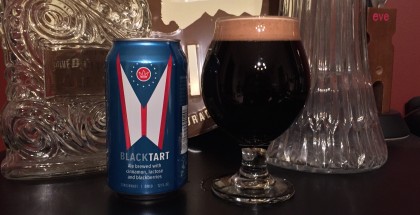
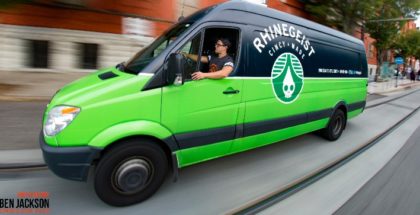

Submit a Comment